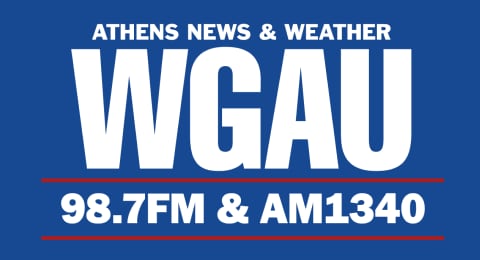As Luigi Mangione pleaded not guilty to murder charges in Manhattan Criminal Court this morning, protesters from all walks of life assembled outside the courthouse to show their support for the alleged killer.
While their reasons to bear the 11-degree weather varied -- including personal healthcare issues, concerns about inequality and distrust of the media -- they were seemingly united in their support for the 26-year-old whose alleged actions have ignited a nationwide conversation about healthcare.
Pushing her 1-year-old son, Emmanuel, in a stroller, 37-year-old Alicia Thomas from the South Bronx said her experience giving birth while on Medicaid helped her relate to Mangione's grievances with the healthcare industry. Suffering from a postpartum hemorrhage, she said she wanted to spend more than two days in the hospital after giving birth but couldn't afford care beyond what Medicaid provided.
Thomas said she believes Mangione is innocent -- framing him as a victim of the healthcare industry and justice system -- but said his case has brought light to the need to improve healthcare.
"It sparked a catalyst to think about what kind of world we are going to leave our children," she said, showing a Justo Juez prayer candle she plans to light for Mangione. "Our generation has seen so much devastation throughout the years, and our children are going to suffer at the hands of corporate greed."
Prosecutors allege that Mangione meticulously planned and carried out the murder of Thompson outside a Manhattan hotel on the morning of Dec. 4 before fleeing the state to Pennsylvania, where he was arrested days later at a McDonald's. According to the federal complaint, Mangione was in possession of a notebook in which he expressed hostility to healthcare executives, described the insurance industry as his target because it "checks every box," and laid out his intent to "whack" Thompson at UnitedHealthcare's investors conference.
While Mangione did not have family in court on Monday, about two dozen women attended the arraignment in the public section of the gallery, many of them voicing support for Mangione.
"This is a grave injustice, and that's why people are here," one of the women, who said she arrived at the courthouse at 5 a.m., told ABC News.
Outside court, protestors rallied for Mangione, chanting "Eat the rich," "Hey, hey, ho, ho, these CEOs have got to go," and "Free, free Luigi."
Nicholas Zamudio, 33, said he came to the protest after spending over $100,000 out of pocket for his treatment after an electric injury in 2021. Holding a sign that read "United States Healthcare Stole My Livelihood. Prosecute Malicious Profiteers," Zamudio said he doesn't know if he will be able to afford his ongoing treatment for nerve damage.
"I don't have insurance, I've drained my 401K. I've drained everything that I have, and come January I will be trying to keep a roof over my head by couch hopping amongst friends. I've lost everything and that's what brought me out here," he said.
Zamudio said he found comfort in Mangione's writings about his spinal injury, noting they both received similar spinal fusion operations.
"He talked about not being able to sleep, laying in pain, things like that," he said. "I guess a lot kind of resonated with me in regards to the pain and not getting help with the healthcare system. I think murder is obviously wrong, but it did bring us to a point we needed to get to."
Law enforcement has raised concerns about the outpouring of support for Mangione and hostility towards healthcare industry since Thompson's killing, with multiple police bulletins warning about the increased risk to healthcare executives. UnitedHealth Group's CEO Andrew Witty appeared to acknowledge the public sentiment, writing in an opinion essay in the New York Times earlier this month that he "understand people's frustrations" with healthcare and vowed to "to find ways to deliver high-quality care and lower costs."
"[W]e also are struggling to make sense of this unconscionable act and the vitriol that has been directed at our colleagues who have been barraged by threats. No employees — be they the people who answer customer calls or nurses who visit patients in their homes — should have to fear for their and their loved ones' safety," Witty wrote.
While the specifics of Mangione's grievances with the healthcare injury remain unclear -- and we do not know if his personal issues with the healthcare system motivated his alleged actions -- many of the protesters came to their own conclusions about what motivated the alleged killer.
A 26-year-old woman from Queens who preferred to go unnamed said she related to Mangione after she fell off her parent's healthcare plan and couldn't afford COBRA coverage. Having gone uninsured for months, she said she believes the healthcare system is broken based on her inability to find a good plan despite days of effort calling different insurance companies.
"I spent an entire month -- 9 a.m. to 5 p.m. with three phones in front of me -- waiting on the phone on hold to get access to these people. They put me through circles and circles and circles," she said.
Another woman from Brooklyn said she came to court because she believed Mangione was bringing attention to the need for universal healthcare in the United States. She added that she didn't trust the media coverage of Mangione's case and wanted to see the proceedings with her own eyes to draw conclusions.
"There was a lot of support from where we were in the back [of court]," she said after attending the arraignment in person. "I believe it's a conversation that a lot of people are having now, and whatever we can do to help progress this conversation is worthy of participating in."
Bill Dobbs, who lives in Manhattan, said he was motivated to support Mangione after federal prosecutors charged the 26-year-old with a crime that carries the death penalty. He held a sign that read "Justice not Vengeance."
"It's very alarming there could be a death penalty," he said. "Punishment has got to leave a chance for change, and the death penalty doesn't."
Mangione's disdain for the healthcare industry only added to his reasons to support the alleged killer, Dobbs said.
"What's going on in the private healthcare industry is scandalous," he said.
While most of the protestors said they believed Mangione was innocent, their support for Mangione carried an implicit incongruence -- Is Mangione an innocent victim or a martyr for confronting the healthcare industry through his alleged actions? Many protestors who spoke with ABC News reconciled the beliefs by referencing the plague of mass shootings impacting the United States, claiming that the attention on Mangione and terrorism label is evidence of a broken justice system.
"He's an alleged shooter, but how many school shooters are labeled with terrorism. How many?" asked one protestor.
Copyright © 2024, ABC Audio. All rights reserved.






